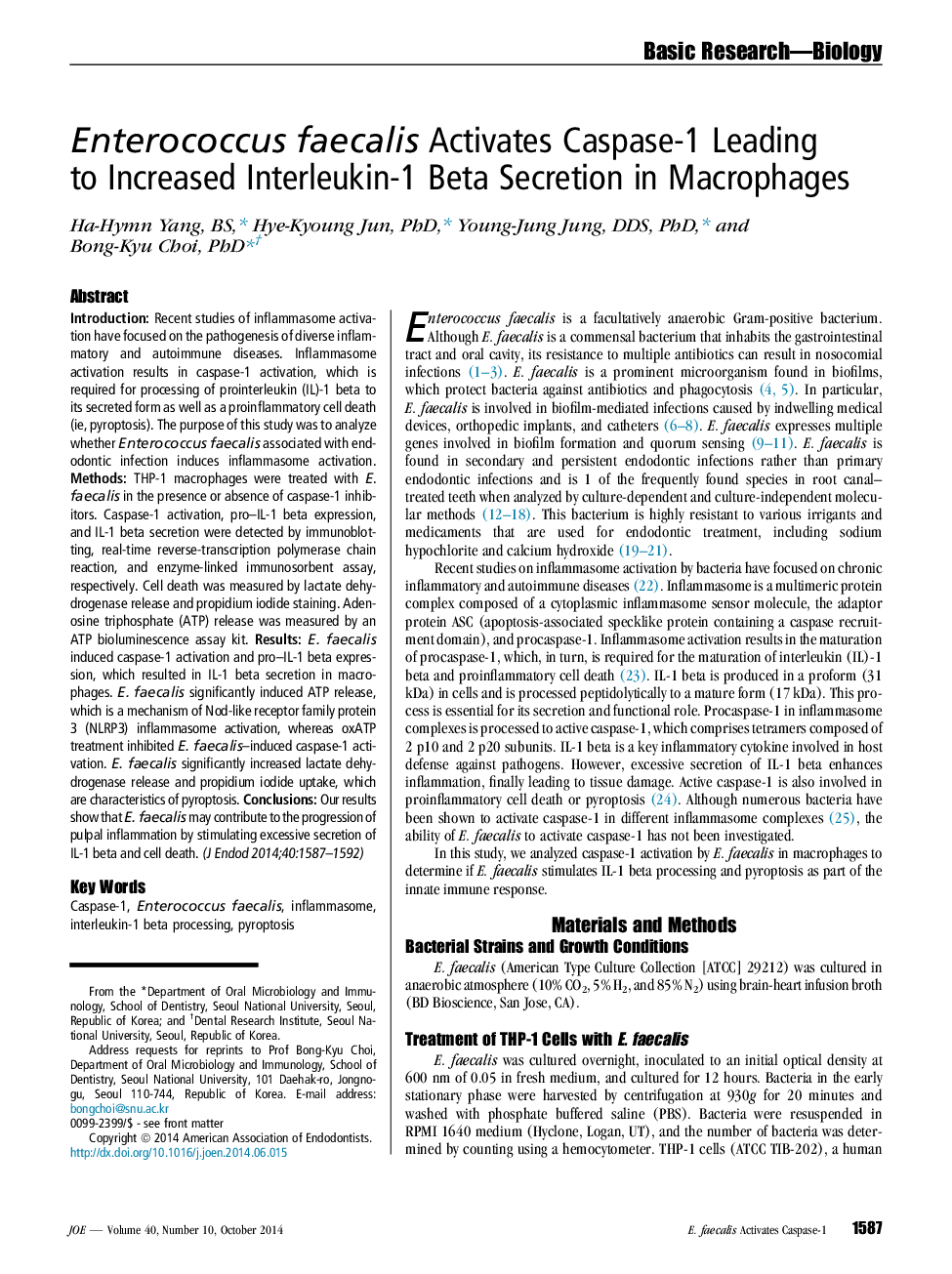| Article ID | Journal | Published Year | Pages | File Type |
|---|---|---|---|---|
| 3146664 | Journal of Endodontics | 2014 | 6 Pages |
IntroductionRecent studies of inflammasome activation have focused on the pathogenesis of diverse inflammatory and autoimmune diseases. Inflammasome activation results in caspase-1 activation, which is required for processing of prointerleukin (IL)-1 beta to its secreted form as well as a proinflammatory cell death (ie, pyroptosis). The purpose of this study was to analyze whether Enterococcus faecalis associated with endodontic infection induces inflammasome activation.MethodsTHP-1 macrophages were treated with E. faecalis in the presence or absence of caspase-1 inhibitors. Caspase-1 activation, pro–IL-1 beta expression, and IL-1 beta secretion were detected by immunoblotting, real-time reverse-transcription polymerase chain reaction, and enzyme-linked immunosorbent assay, respectively. Cell death was measured by lactate dehydrogenase release and propidium iodide staining. Adenosine triphosphate (ATP) release was measured by an ATP bioluminescence assay kit.ResultsE. faecalis induced caspase-1 activation and pro–IL-1 beta expression, which resulted in IL-1 beta secretion in macrophages. E. faecalis significantly induced ATP release, which is a mechanism of Nod-like receptor family protein 3 (NLRP3) inflammasome activation, whereas oxATP treatment inhibited E. faecalis–induced caspase-1 activation. E. faecalis significantly increased lactate dehydrogenase release and propidium iodide uptake, which are characteristics of pyroptosis.ConclusionsOur results show that E. faecalis may contribute to the progression of pulpal inflammation by stimulating excessive secretion of IL-1 beta and cell death.
